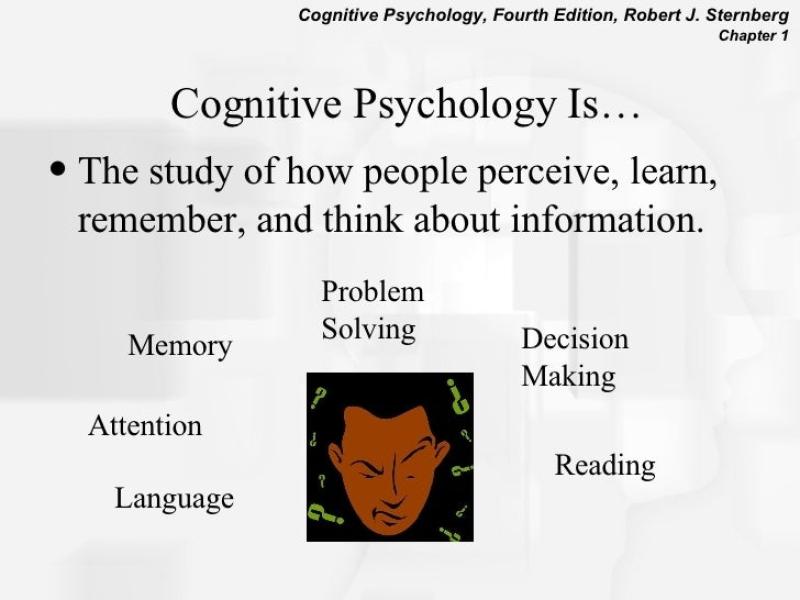Why is it important to study cognitive psychology?
Studying cognitive psychology is important for several reasons, as it provides valuable insights into how the mind works and influences behavior. Here are some key reasons why the study of cognitive psychology is significant:
Understanding Mental Processes:
- Cognitive psychology focuses on understanding the various mental processes that underlie human behavior. This includes processes such as perception, memory, attention, language, problem-solving, and decision-making. Understanding these mental processes helps explain how individuals think, learn, and interact with the world.
Improving Learning and Education:
- Cognitive psychology contributes to the development of effective teaching methods and educational strategies. By studying how people learn and retain information, educators can design instructional approaches that optimize learning outcomes and cater to individual differences in cognitive abilities.
Enhancing Memory and Learning Strategies:
- Research in cognitive psychology has led to insights into memory enhancement and effective learning strategies. Understanding how memory works helps individuals develop better techniques for studying, retaining information, and recalling details.
Informing Clinical Psychology and Therapy:
- Cognitive psychology is integral to clinical psychology and therapy. It provides a foundation for understanding cognitive processes associated with mental health issues, such as depression, anxiety, and cognitive disorders. Cognitive-behavioral therapy (CBT), a widely used therapeutic approach, is rooted in cognitive psychology principles.
Advancing Technology and Human-Computer Interaction:
- Cognitive psychology plays a crucial role in the design and improvement of technology, especially in the realm of human-computer interaction. Understanding how humans process information helps create user-friendly interfaces, design efficient software, and enhance the overall user experience.
Exploring Decision Making and Problem Solving:
- Cognitive psychology investigates how individuals make decisions and solve problems. This knowledge is valuable in fields such as business, economics, and organizational behavior, where understanding decision-making processes can inform strategies for problem-solving, leadership, and management.
Contributing to Cognitive Neuroscience:
- Cognitive psychology collaborates with cognitive neuroscience to explore the neural basis of cognitive processes. This interdisciplinary approach enhances our understanding of the brain mechanisms involved in perception, memory, and other cognitive functions.
Informing Artificial Intelligence (AI):
- Cognitive psychology contributes to the development of artificial intelligence by providing insights into human cognitive processes. AI systems are often designed to mimic human-like thinking and problem-solving, making cognitive psychology a foundational field for AI research.
Facilitating Effective Communication:
- Understanding cognitive processes is crucial for effective communication. Cognitive psychology helps explain how individuals comprehend and interpret information, influencing the fields of linguistics, rhetoric, and communication studies.
Addressing Everyday Challenges:
- Insights from cognitive psychology can be applied to address everyday challenges in areas such as time management, decision-making, and stress management. Practical applications of cognitive psychology principles can improve individual well-being and productivity.
In summary, studying cognitive psychology is essential for gaining a comprehensive understanding of mental processes, informing practical applications in various domains, and contributing to advancements in education, technology, healthcare, and more.
Why is the study of cognitive psychology considered important?
The study of cognitive psychology is important for several reasons:
It helps us to understand how we think, learn, and remember. This knowledge can be used to develop new educational techniques, improve workplace productivity, and treat mental disorders.
It helps us to understand how we perceive and interact with the world around us. This knowledge can be used to design safer products and environments, improve communication, and reduce conflict.
It helps us to understand how we make decisions. This knowledge can be used to develop more effective marketing strategies, improve public policy, and promote ethical behavior.
It helps us to understand how we experience and cope with emotions. This knowledge can be used to develop more effective therapies for mental disorders, improve relationships, and promote mental well-being.
What practical applications arise from understanding cognitive psychology?
There are many practical applications that arise from understanding cognitive psychology. Here are a few examples:
Education: Cognitive psychologists have helped to develop new educational techniques that are more effective in helping students learn. For example, they have shown that spaced repetition and retrieval practice are more effective than rote memorization.
Workplace productivity: Cognitive psychologists have helped to identify factors that can improve workplace productivity, such as providing regular breaks, reducing distractions, and providing clear instructions.
Mental health: Cognitive psychologists have helped to develop new therapies for mental disorders, such as cognitive behavioral therapy (CBT), which is based on the understanding of how thoughts and behaviors interact.
Product design: Cognitive psychologists can help to design products that are easier to use and safer. For example, they can help to design car dashboards that are less distracting and traffic signs that are easier to read.
Marketing: Cognitive psychologists can help to develop marketing strategies that are more effective in reaching consumers. For example, they can help to identify the best way to frame messages and the most effective way to use images.
Public policy: Cognitive psychologists can help to develop public policy that is more effective in promoting desired outcomes. For example, they can help to design policies that are more likely to be followed and that are more likely to achieve their intended goals.
How does cognitive psychology contribute to various fields or industries?
Cognitive psychology contributes to a wide range of fields and industries, including:
Education: Cognitive psychology has helped to develop new educational techniques, improve teacher training, and design more effective curricula.
Business: Cognitive psychology has helped to improve workplace productivity, develop more effective marketing strategies, and design safer products.
Healthcare: Cognitive psychology has helped to develop new therapies for mental disorders, improve communication between doctors and patients, and design more effective medical devices.
Law: Cognitive psychology has helped to improve the accuracy of eyewitness testimony, develop more effective jury selection techniques, and design more effective crime prevention strategies.
Government: Cognitive psychology has helped to develop more effective public policy, improve communication with the public, and design safer infrastructure.
In addition to these specific examples, cognitive psychology can be applied to any field or industry that is concerned with understanding human behavior.












